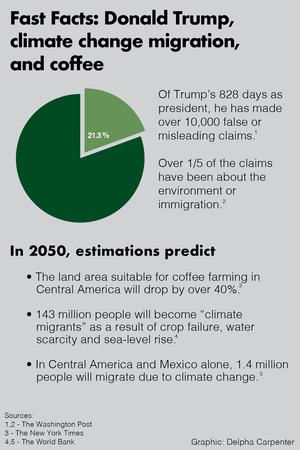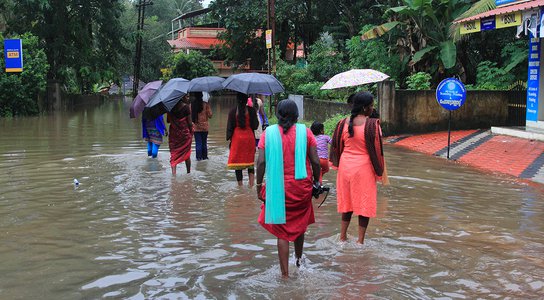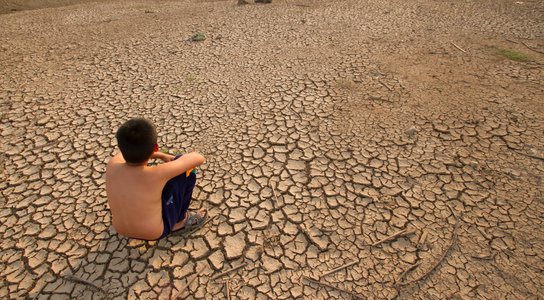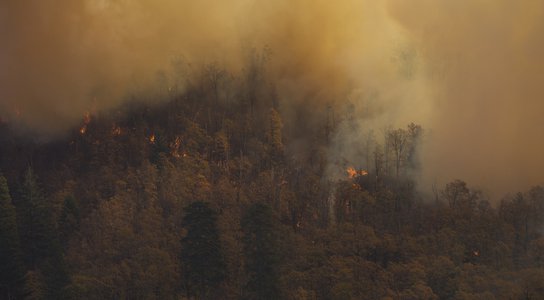How the Trump administration’s environmental and migration policies could affect coffee production.
President Donald Trump reportedly doesn’t drink coffee, but a whopping 64 percent of Americans drink at least one cup per day. Year after year the demand for coffee continues to rise, but there’s one huge obstacle standing in the way of you and your cup of joe: climate change.
Trump may not have a liking for coffee, and we’ve all seen him time and again dismissing climate change – but there’s another issue that he’s overseeing: the effect of climate change on migration. Known as “climate migration” – this means that more migrants are coming to the US due to the effects of climate change on their land, homes and farms.
While Trump is determined to curb migration to the US, his denial of climate change and his administration’s environmental policies work against this. Climate change in turn is a driver of migration to the US, with climate migration having the potential to become a new global crisis as farmable land becomes more and more scarce.
Behind the misleading climate & migration claims
According to the Washington Post’s Fact Checker, President Trump has made 10,111 false or misleading claims over the span of his 828 days in office (as of April 27, 2019). Of these questionable claims, 246 have been about the environment and 1,914 – nearly 25% – have been about immigration.
Trump’s has claimed that the scientific consensus on climate change is widely disputed, that the Paris Climate Accord was damaging for the US, and that the US has the cleanest air quality – making environmental experts raise their eyebrows
He has also claimed that immigrants are dangerous criminals, coming to the US to commit crimes, while interviews at the border show many are actually in need of economic opportunity and safety.

Understanding climate migration
Agriculture has been one of the industries most affected by climate change. Making a living from farming is difficult in itself, but even harder when climate change leads to widespread crop failure. In turn, crop failure has led to farmers leaving their land in search of new beginnings, subsequently adding to the number of families migrating to the US.
The World Bank estimated that 143 million people could become “climate migrants” as a result of crop failure, water scarcity and sea-level rise.
Central America is home to one of the world’s largest agriculture and coffee industries, but also one of the regions expected to be most affected by climate change. Some predictions estimate that the land area suitable for coffee farming in Central America will drop by over 40% by 2050.
To coffee farmers, growing and harvesting is more than just a business. Farming is a culture, community and lifestyle passed on from generation to generation.
Unfortunately, the effects of climate change have forced some farmers to leave their farms and seek out new beginnings elsewhere. Increasing temperatures and unpredictable and extreme weather patterns have resulted in disrupted growing cycles and the rapid spread of pests.
According to the Climate Institute, climate change is expected to halve the area of land suitable for coffee farming worldwide. Furthermore, over 120 million people whose livelihoods depend on coffee production will be impacted.
High temperatures and droughts cause the plants to dry out during the flowering process. Coffee plants are finicky and require a precise altitude and precise amount of rainfall to flourish. As the amount of farmable land decreases, farmers have been tempted to move to higher altitudes or biodiversity hotspots, however, general pollution and habitat loss make it difficult. It is estimated that 60% of the world’s 124 coffee species are at risk of extinction due to climate change and deforestation.
Thus, many coffee farmers are no longer able to make livable wages and are now seeking out new employment opportunities as a last resort.
In past years, the US has given tens of millions of dollars in foreign aid to countries across Central America for various purposes, including climate change adaptation. However, Trump has threatened to cut off all foreign aid to Honduras, Guatemala and El Salvador because of what he views as a failure to curb the flow of migrants.
Trump’s “solution” is questionable at best. His policies could result in further unemployment, exacerbated climate change, and abandoned farms that feed local communities and the world. Climate change will inevitably cause millions of people to flee their homes.
Rather than coming to commit dangerous crimes, many immigrants from Central America are fleeing the effects of climate change and seeking new livelihoods. The poorest people in the world’s poorest countries are being most affected by climate change, which will inevitably lead to increased global inequality.
Whether you’re a coffee drinker or not, we can’t stand by and ignore the devastating effects that climate change has on the livelihoods of so many.


